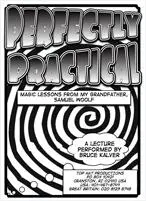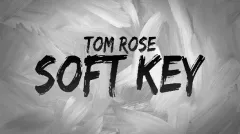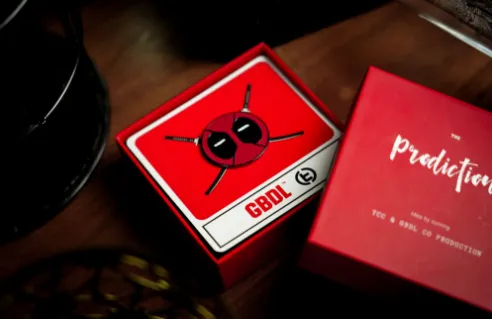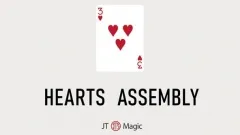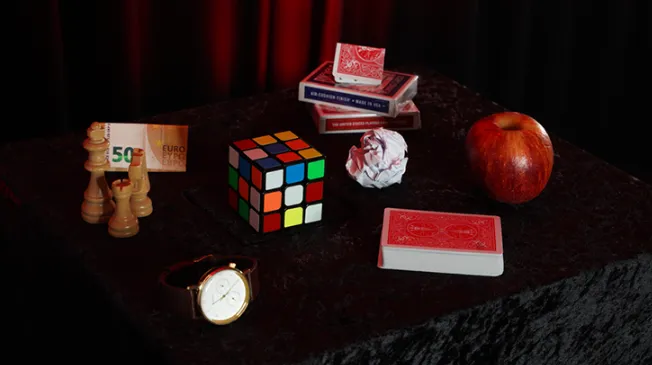A spectator rolls a pair of (imaginary) dice to draw a number, and randomly chooses a card, only to incredibly succeed in finding it, after the stop decided by the magician at the turning of the cards, at the very number he indicated.
An almost self-working "Any Card At Any Numer" effect, always improvisable, where the magician, once introduced to an ordinary 52-card poker deck (minus the Jokers), even possibly borrowed, hands it to a spectator to shuffle freely. Having got the cards back, he hands the first spectator half the deck and meanwhile asks a second spectator (or the same one, if no one else is available) to roll two invisible (just imaginary) dice and announce the number corresponding to the total score obtained. The conjurer and the first spectator will shuffle again, each their half of the deck. Then the latter will cut a small bundle from the top of his pack and hand it to the conjurer so that he will add it to his own pack and have no way of knowing the number of cards in each. The same spectator will then choose any card from his own and lose it among the other cards, taking care to cut both bundles and intersperse them with each other, bringing them together into a single deck.
The illusionist will pick up the cards and deal them out one by one, turning them face down and stacking them on the table, until he says he senses the moment to stop.
At that point, the cards will change hands to the second spectator, if any, who, after remembering his number, will count that exact number of cards from the top of the remaining deck. Before turning over the corresponding card, the chosen card will be revealed aloud, to finally note its match with the last card turned over, to the applause of the audience.

